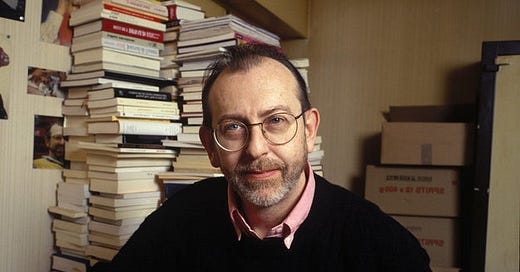"The greatest challenge of our time is the struggle against the dissolution of all identities in a globalized world."
Alain de Benoist
"The greatest challenge of our time is the struggle against the dissolution of all identities in a globalized world."
Alain de Benoist
Alain de Benoist, born on December 11, 1943, is a French philosopher and political thinker, most notably associated with the Nouvelle Droite (New Right) movement in Europe. Benoist’s work focuses on cultural identity, the critique of modernity, and the defense of regional and national identities against the perceived homogenizing forces of globalization. His ideas have had a significant influence on European intellectual and political discourse, particularly among those critical of liberalism and globalization.
The quote, "The greatest challenge of our time is the struggle against the dissolution of all identities in a globalized world," encapsulates one of Benoist’s central concerns: the preservation of cultural and national identities in the face of global integration. The meaning of this quote is that globalization, with its economic, cultural, and political dimensions, threatens to erode the distinctiveness of local and national identities by promoting a uniform, global culture. Benoist argues that globalization imposes a standardized way of life, leading to the loss of traditional values, languages, customs, and a sense of belonging that are vital to the human experience.
For Benoist, identity is not only about individual self-definition but is deeply tied to one’s cultural heritage, historical roots, and sense of place. He believes that when people lose connection to their unique cultural identities, they also lose a fundamental part of their humanity. Globalization, in his view, flattens these identities in favor of consumerism, economic efficiency, and a cosmopolitan ideal that ignores the importance of diversity and the depth of cultural traditions.
Benoist’s critique of globalization is intertwined with his broader philosophical stance, which emphasizes the need for a multipolar world where diverse civilizations and cultures can coexist without one hegemonic power imposing its values universally. He advocates for the preservation and celebration of difference, rejecting the idea that modern progress necessitates cultural uniformity. The "dissolution of identities" in his quote points to what he sees as the erasure of these unique cultural expressions under the pressure of Western, particularly American, cultural dominance.
Ultimately, the quote reflects Benoist's concern that in an increasingly interconnected world, the struggle to maintain and protect distinct identities—whether ethnic, national, or regional—is one of the most pressing challenges. Without this preservation, he warns, the richness of human diversity could be lost, replaced by a bland, globalized culture that lacks depth and meaning.




